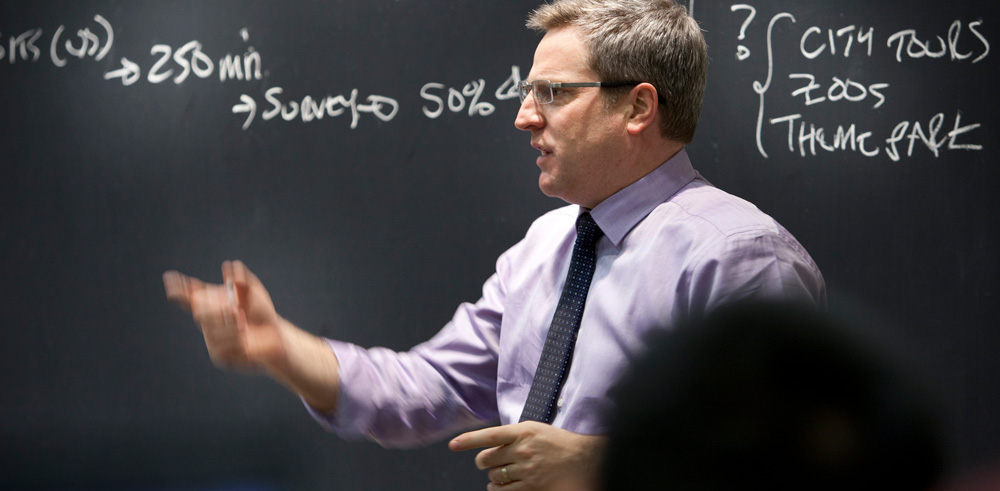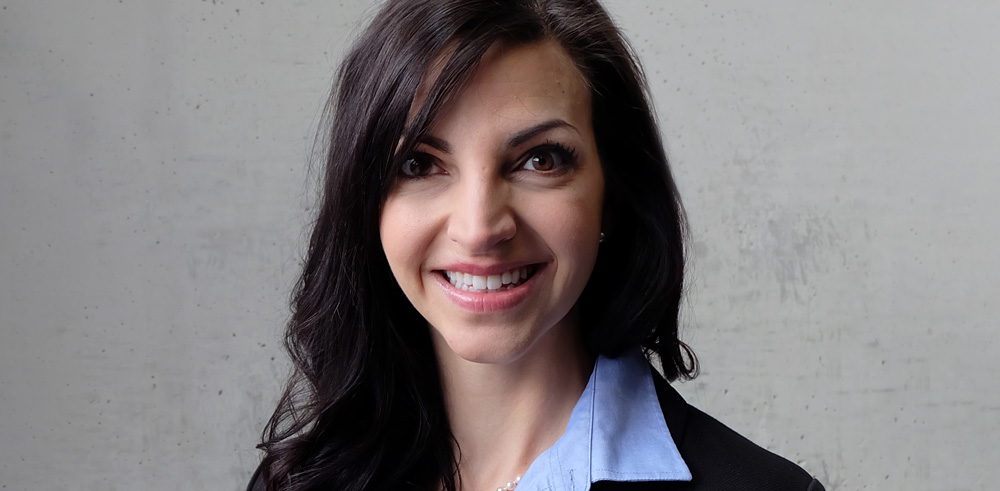Students, get ready. When you’re in Professor Alexander Dyck’s Private Equity and Entrepreneurial Finance class, you need to know your stuff.

Professor Alexander Dyck
This case-driven MBA elective is known for its heavy emphasis on participation. That means students must be ready to speak about different cases every session. If the room gets quiet, Dyck has no problem calling on students.
“He sets high standards. He wants you to state your opinion and apply the course concepts,” says Emilija Davidovic (MBA ’21). “In each class, Professor Dyck would ask very specific and pointed questions. I knew I needed to come prepared.”
When teaching activities shifted online temporarily because of the global pandemic, Dyck didn’t expect any less from his students. He and his teaching colleagues at the Rotman School thought hard about how to bring the energy and engagement of the in-person learning experience online.
“Anyone who has met Professor Dyck or heard him speak can see that he has a lot of energy, and that energy is contagious in the classroom,” says Yule Schmidt (Morning MBA ’21). “While we missed those in-person classes, I think many of us were impressed by how quickly he pivoted and managed to bring that energy online.”
When classes went online, some things stayed the same
Though the delivery format for the course had changed suddenly, Dyck was adamant that certain aspects stay consistent. He still expected students to show up on time, remain present throughout class (they were encouraged to keep their webcams on) and — just as before — be ready to dissect the assigned cases.

Yule Schmidt (Morning MBA '21)
His virtual classes also featured breakout discussions and small group exercises, which were common in his in-person lectures. He often organized students into smaller groups and encouraged them to discuss a specific case or topic. Dyck could wander around the (virtual) classroom, listening in on a group’s discussion for a few minutes, before bringing students together for a broader conversation.
“I think it was important for all of us to remember that we were all very much a part of the class — everyone was still expected to attend and actively participate.” says Dyck, who is a professor in the Finance and Economic Analysis and Policy areas at the School.
“While a lot of things might have changed recently, Rotman professors are still focused on delivering classes that are engaging and challenging.”
“While a lot of things might have changed recently, Rotman professors are still focused on delivering classes that are engaging and challenging.”
—Alexander Dyck, Professor of Finance and Economic Policy and Analysis
What changed
However, virtual classes did bring about new changes, and Dyck tried to take advantage of the tools that the virtual teaching platform offered — and there were unexpected perks.
One of his favourite techniques with virtual teaching was kicking off discussions with an online poll about a case they had just covered. Dyck would then ask students to explain why they voted a specific way.
Davidovic found that the polls were helpful in starting conversations.
“I think with in-person classes, when students are asked to vote by raising their hands and everyone can see how others are leaning, it can be hard to go against the majority,” says Davidovic. “Identifying outlier or rare viewpoints can only happen in an online class — and it sparked some interesting discussions."

Emilija Davidovic (MBA ’21)
It also seemed like the class got to hear from more students in the online format.
“Professor Dyck was great at democratizing discussions online,” says Schmidt. “He wouldn’t just call on the first hand that went up. I think he tried to call on students who hadn’t been heard from earlier in the class.”
The class also took advantage of the chat feature. It became common practice for the course’s teaching assistant to monitor the incoming messages during Dyck’s lectures and find opportunities to bring up pertinent comments and questions.
“I was very impressed by the insights that were coming in through chat. We learned from those with previous experience working on projects similar to the cases discussed. It really gave us a chance to harness the collective knowledge of the class,” says Dyck. “If it hadn’t been mentioned in the chat, I don’t think we would have heard these stories.”
Outside of class, students were also carrying on conversations and exploring topics in greater depth on discussion boards. And students benefited from the videos that Dyck regularly posted, where he explained complex and technical topics in depth. (It helped that students could slow down or replay the videos until they truly grasped the concepts.)
Though there are number of things everyone is missing out on right now — travel, seeing loved ones, reconnecting in-person with classmates and colleagues — Dyck says that students can rest assured that they won’t miss out on an enriching learning experience.
“With time and effort, we were able to replicate most of the important elements of the classroom experience,” says Dyck. “I think everyone is eager to return to the School and the physical classroom. However, in the meantime, instructors are delivering content in ways that engage students.”
Written by Rebecca Cheung | More Student Stories »